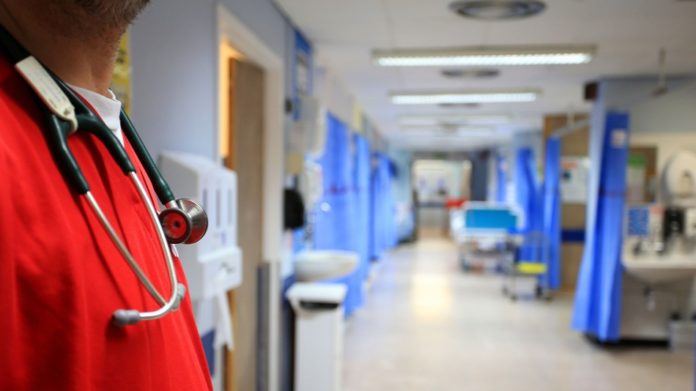Google’s DeepMind gains access to data of 1.6 million NHS patients

LONDON — DeepMind, the artificial intelligence company owned by Google, has been granted access to the healthcare data of some 1.6 million NHS patients.
The company has the patient information for three London hospitals – Barnet, Chase Farm and Royal Free – as part of a data-sharing agreement with the Royal Free NHS Trust, New Scientist reports.
The agreement, which is viewable online, grants DeepMind access to the data, which will be stored in the UK by a third party, until the end of September 2017, at which point it’s obliged to delete its copy. The name of the third party is redacted in the uploaded document linked to from New Scientist.
Google’s interest is ostensibly in kidney function; DeepMind has been working with the Royal Free to develop a mobile app, Streams, to help nurses and doctors detect cases of acute kidney injury.
However, the information available to them as part of this mass share includes much more, from pathology and radiology test results to hospital logs tracking the location and status of patients, and who visits them.
Information about people who are HIV-positive and details of abortions and drug overdoses are also included, as well as A&E data.

Image: Rui Vieira/PA Wire
A spokesperson for the Royal Free told the Guardian that the arrangement is “the standard NHS information-sharing agreement set out by NHS England’s corporate information governance department.”
It’s “the same as the other 1,500 agreements with third-party organisations that process NHS data,” they added. Mashable has reached out for more information.
However, Sam Smith, from privacy campaigners MedConfidential, insists that the agreement is “not just about kidney function.”
“They’re getting the full data.”
“They’re getting the full data,” he said.
“What DeepMind is trying to do is build a generic algorithm that can do this for anything – anything you can do a test for. The big question is why they want it. This is a very rich data set. If you are someone who went to the A&E department, why is your data in this?”
MedConfidential’s coordinator Phil Booth told Mashable he was concerned by the lack of clarification from Google.
“All other, normal, NHS data sharing agreements are based on using the data for a specific purpose. A purpose that is reported to patients when they ask how their data has been used,” he said.
“Google have refused to say why they need five years of data on every treatment in the hospital. Legitimate research has a research goal, what is this one?”
“It might be utterly benign, but its deeply concerning that they won’t commit to saying anything, as every legitimate researcher would happily do.”
still unclear why @DeepMindAI wanted 5 years of historic monthly data for their current-patient results-notifications project…
— medConfidential (@medConfidential) May 3, 2016
DeepMind has big goals. The company is reportedly developing a platform, Patient Rescue, designed to offer data analytics to hospital trusts and eventually support doctors with data-based predictions.
Essentially it aims to highlight potential diseases by comparing a patient’s data with that of millions of other cases – before the symptoms kick in.
Ross Anderson from the University of Cambridge, who taught one of DeepMind’s co-founders, is less worried about Google’s access to data, or potential profit from using the research.
He’s more concerned about the possibility of Google securing exclusive rights to working with the NHS.
“If Google gets a monopoly on providing some kind of service to the NHS it will burn the NHS,” he warned.
Have something to add to this story? Share it in the comments.
